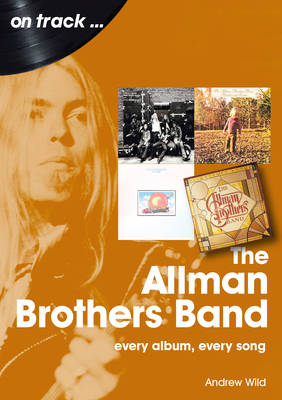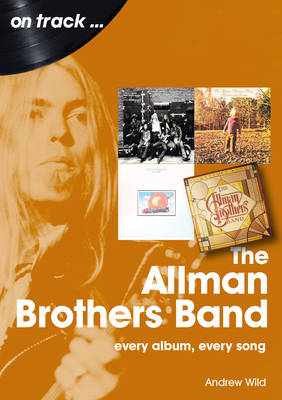
- Retrait gratuit dans votre magasin Club
- 7.000.000 titres dans notre catalogue
- Payer en toute sécurité
- Toujours un magasin près de chez vous
- Retrait gratuit dans votre magasin Club
- 7.000.0000 titres dans notre catalogue
- Payer en toute sécurité
- Toujours un magasin près de chez vous
Description
In 1973, the Allman Brothers Band were one of the most popular in America: they headlined the Watkins Glen Summer Jam, attended by an estimated 600,000 people and their album Brothers and Sisters was a number one for five weeks on the Billboard listings that summer. The single 'Ramblin' Man' hit #2 in October. The group made the cover of Newsweek. Rolling Stone named them 'band of the year'. Their story can only be described as 'volatile'. Always a strong live draw since forming in 1969, in the two years prior to Watkins Glen they had released one of the greatest live albums of all time and lost two founding members in near-identical motorcycle accidents, including guitar genius 24-year-old Duane Allman. Increased drug use and a ruinous 1976 court case forced the band apart. A three-album reunion between 1978 and 1982 rekindled some of the old fire, but it was with their twentieth anniversary and second reformation in 1989 that provided a degree of stability and acclaim. The passing of founder members Butch Trucks and Gregg Allman in 2017 definitively ended the band's story. Their legacy of eleven studio albums, six contemporaneous live albums and several box sets includes classics such as their self-titled debut, the sophomore Idlewild South, their artistic and commercial breakthrough, the definitive live document At Fillmore East and astounding final album Hittin' The Note from 2003.The music of the Allman Brothers is the pure distillation of the four main ingredients of American music: blues, rock, jazz and country. At their best, they transcended genre: they just were.
Spécifications
Parties prenantes
- Auteur(s) :
- Editeur:
Contenu
- Nombre de pages :
- 176
- Langue:
- Anglais
- Collection :
Caractéristiques
- EAN:
- 9781789522525
- Date de parution :
- 15-02-23
- Format:
- Livre broché
- Format numérique:
- Trade paperback (VS)
- Dimensions :
- 140 mm x 220 mm
- Poids :
- 217 g

Les avis
Nous publions uniquement les avis qui respectent les conditions requises. Consultez nos conditions pour les avis.






